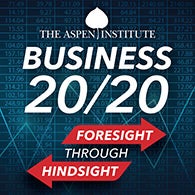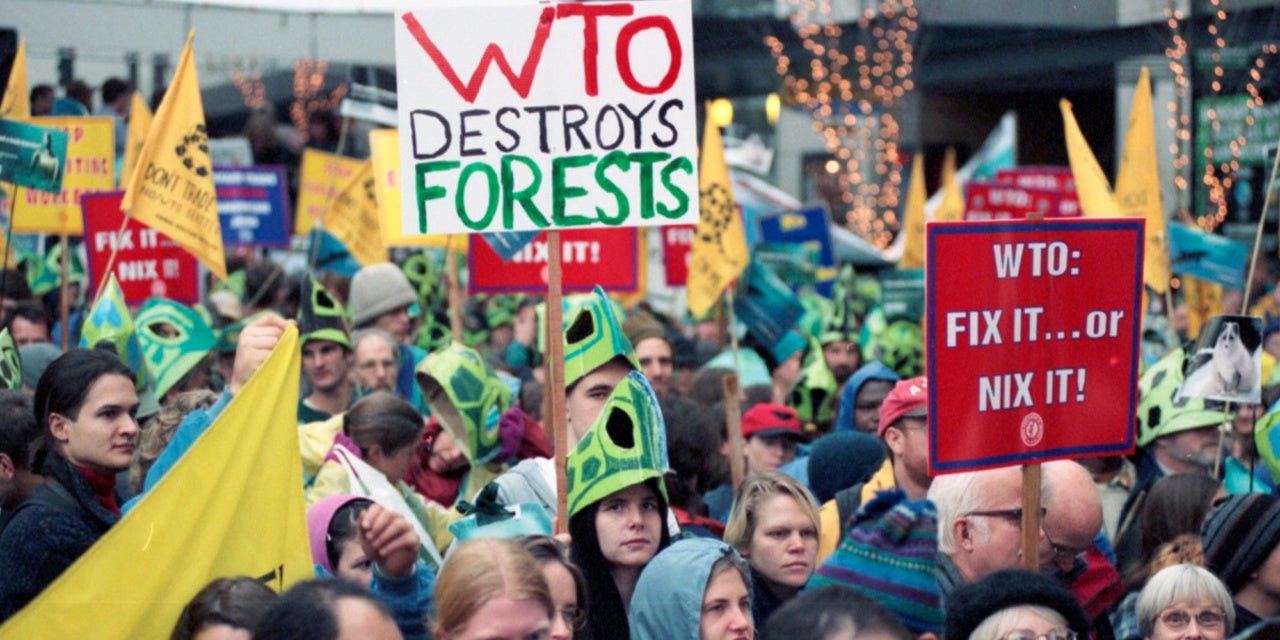 In most tellings, the 2000 tech crash is a straightforward story: the music stopped and unprofitable dot-com companies failed, paving the way for the more innovative companies of the Web 2.0 era. This episode explores a very different view of the tech crash: as a key turning point where the idealism of early web entrepreneurs gave way to new business practices that would in time, drive today’s backlash against technology companies–the “techlash.” This fresh look at tech’s evolution suggests new answers for idealism and tech, and greater equality and innovation in the US economy.
In most tellings, the 2000 tech crash is a straightforward story: the music stopped and unprofitable dot-com companies failed, paving the way for the more innovative companies of the Web 2.0 era. This episode explores a very different view of the tech crash: as a key turning point where the idealism of early web entrepreneurs gave way to new business practices that would in time, drive today’s backlash against technology companies–the “techlash.” This fresh look at tech’s evolution suggests new answers for idealism and tech, and greater equality and innovation in the US economy.
The Business 20/20 podcast is a series that explores the changing relationship between business and society from 1999 to today. Each episode unpacks a key event—from the Seattle WTO protests to the global financial crisis and beyond—to find insights for the future. Produced by the Aspen Institute’s Business & Society program and hosted by Michelle Harven.
Follow the Business & Society Program on @AspenBizSociety and subscribe to the Business & Society Newsletter.
Techlash and tech crash: What to read to go deeper
Looking to better understand possible futures for the tech sector today – and how the business of tech came to be what it is today? We’ve got you covered.
Foresight: Shape the Future of Business
Poll: Two-Thirds of Americans Want to Break Up Companies like Amazon and Google (Emily Stewart, Vox) Just how widespread is the techlash? Check out this detailed breakdown of the polling numbers.
The Persistence of Memory (Brian McCullough, Medium) In this piece, Brian articulates his thesis that tech since the dot-com crisis has primarily relied on one trick of going for scale—plus, hopeful musings on what tech might be.
So the Internet Didn’t Turn out the Way We Hoped. Where Do We Go from Here? (Bill Waisk, Kevin Roose, many others in The New York Times) This special feature in The New York Times Magazine teases out possible futures for the internet. Kevin Roose’s essay looks at an emerging subset of the internet that offers a better quality of life—but at what price?
Zebras Fix What Unicorns Break (Jennifer Brandel, Mara Zepeda, Astrid Scholz & Aniyia Williams, Medium) A more optimistic take on what today’s entrepreneurs could aspire to: “We believe that developing alternative business models to the startup status quo has become a central moral challenge of our time.”
Hindsight: Understand the Long-Term Trends behind Today’s Headlines
The Untold Story of Jaime Levy, Punk-Rock Cyber-Publishing Pioneer (Claire L. Evans, New York Magazine) The idealism of the early web, encapsulated. Excerpted from the book Broad Band: The Untold Story of the Women Who Made the Internet by Claire L. Evans, whose thinking on the tech crash was also a major inspiration for this episode.
Venture Labor – Work and the Burden of Risk in Innovative Industries (Gina Neff) This academic analysis suggests the stories of dot-com era “Silicon Alley” entrepreneurs like Jaime Levy reveal “a broader shift in society in which economic risk shifted away from collective responsibility toward individual responsibility.”
Capital Markets and Job Creation in the 21st Century (Jerry Davis, The Brookings Institute) After the dot-com bubble, this shifting of risk would accelerate with a defining feature of the Web 2.0 era: “Corporations with tiny employment rolls and assets, such as Facebook, now achieve vast market capitalizations, while large employers, like Kroger, often have modest market caps.”
‘A Decade of Cravenness’: Tim Wu on How Enforcing Competition Law Could Have Stopped Big Tech (Brian Feldman, New York Magazine) Their employment rolls may be tiny, but tech companies’ reach and power is enormous. How did they grow so large?
The Dot-Com Bubble Bursts (The New York Times) And if you’re asking how businesses—and regulators—could have possibly seen the internet as just a fad, not to be taken seriously? Consider this line from shortly after the tech crash in 2000: “But it is not the innovators who are reaping all the benefits. Online retailers are losing market share to the likes of Wal-Mart and Kmart.” Amazon who?
Episode Notes
Guests
Jerry Davis, Brian McCullough, Jaime Levy
Host
Michelle Harven
Writing and Production
Written by Keith Schumann with input from T.A. Frank, Miguel Padró, Felicia Davis, and the Business & Society Team.
Recorded by Ben Eyler and edited by Jesse Krinsky. Additional editing by Ben Berliner and Clifton King.
The Business & Society team wishes to thank the audio technicians and everyone involved in the production of this episode, including:
- Rebecca Kruth
- Anny Celsi
- Marci Krivonan
Music Samples Featured in this Episode
The End is Near (Part 1) by Daniel Birch (www.danielbirchmusic.com) Licensed under Creative Commons: By Attribution 4.0 International (CC BY 4.0) https://creativecommons.org/licenses/by/4.0/
Effemeah Weeps by Uncan Licensed under Creative Commons: By Attribution 4.0 International (CC BY 4.0) https://creativecommons.org/licenses/by/4.0/
Typical Babbler by Unconceptual Licensed under Creative Commons: By Attribution 4.0 International (CC BY 4.0) https://creativecommons.org/licenses/by/4.0/
Technetium Planet by Lobo Loco Licensed under Creative Commons: By Attribution 4.0 International (CC BY 4.0) https://creativecommons.org/licenses/by/4.0/
Asset House by Six Umbrellas Licensed under Attribution-ShareAlike 4.0 International (CC BY-SA 4.0) https://creativecommons.org/licenses/by-sa/4.0/
Tobacco Road – Storyblocks Audio
Sound Samples Featured in this Episode
Pit_trading » Floor_trading7.wav


